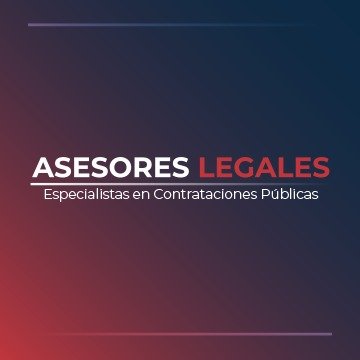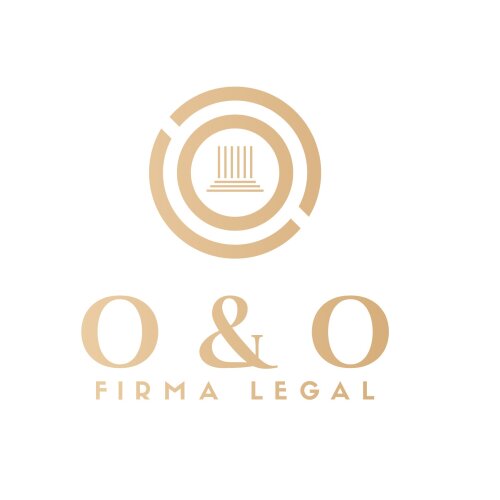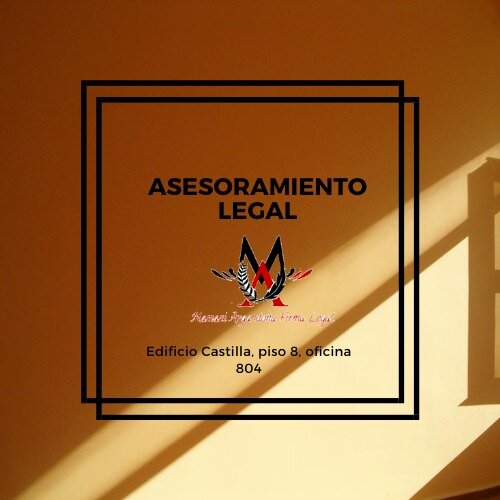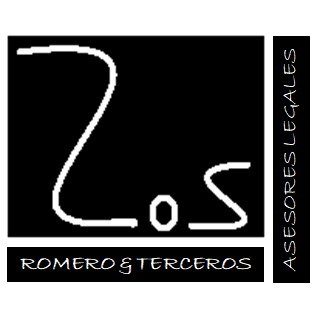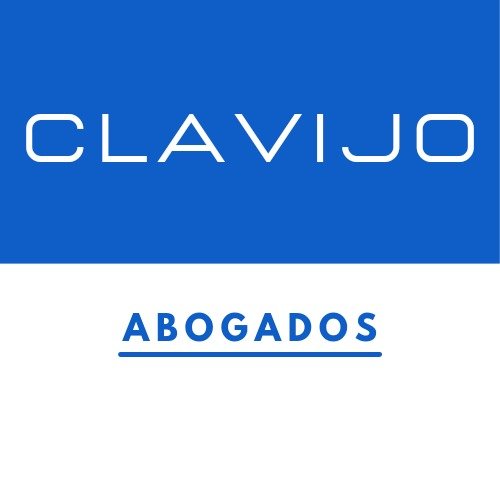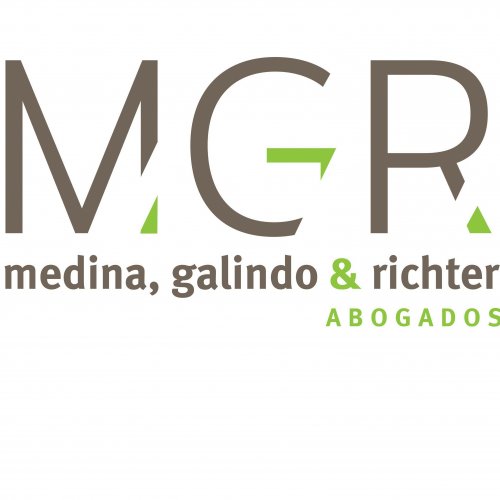Best Sanctions & Export Controls Lawyers in La Paz
Share your needs with us, get contacted by law firms.
Free. Takes 2 min.
List of the best lawyers in La Paz, Bolivia
About Sanctions & Export Controls Law in La Paz, Bolivia
Sanctions and export controls regulations are legal measures that restrict or control the movement of goods, technology, and services across borders for security, political, or economic reasons. In La Paz, Bolivia, these laws are shaped by both national policies and international obligations. Sanctions can target specific countries, entities, or individuals, while export controls regulate which items can leave Bolivia and under what conditions. As a landlocked country with active participation in international trade agreements, Bolivia ensures these laws align with global standards set by bodies like the United Nations and World Trade Organization. Understanding these complexities is crucial for businesses and individuals engaged in import and export activities within Bolivia’s jurisdiction.
Why You May Need a Lawyer
Sanctions and export controls are highly technical and subject to frequent changes, often involving severe penalties for non-compliance. You may need a lawyer if you:
- Operate a business that exports or imports goods, especially dual-use or sensitive products
- Suspect that your transactions may involve embargoed countries or sanctioned individuals
- Have received notices or inquiries from Bolivian customs or government agencies
- Need to vet your international partners or customers according to compliance lists
- Are dealing with asset freezes or blocked accounts due to sanctions
- Plan to expand your trade activities to new markets with complex regulatory requirements
- Want to understand how international sanctions regimes impact your operations in La Paz
- Require assistance obtaining the proper export permissions and documentation
- Face criminal or administrative proceedings related to alleged violations
- Seek to appeal or challenge decisions made by Bolivian authorities in this area
Legal counsel helps interpret the regulations, reduce risks, and defend your interests.
Local Laws Overview
Sanctions and export controls in Bolivia are governed by several legislative instruments and enforced by different government agencies. Key aspects include:
- Embargoes and Sanctions: Bolivia enforces sanctions required by international organizations like the UN, affecting both public and private entities operating in or from La Paz.
- Customs and Border Controls: The Bolivian Customs Authority oversees strict controls at the border, requiring detailed documentation and pre-approvals for sensitive exports.
- Export Licensing: Certain goods such as chemicals, military items, advanced technologies, and cultural artifacts require specific licenses before export or transfer.
- Prohibited Transactions: Engaging with entities or individuals on international sanctions lists, including anti-money laundering provisions, is strictly prohibited.
- Penalties: Violations may result in substantial fines, seizure of goods, suspension of business operations, and criminal prosecution.
- International Cooperation: Bolivia actively coordinates with other countries for information exchange and enforcement in cross-border trade matters.
Staying informed and compliant is particularly important due to the evolving nature of international and national regulations.
Frequently Asked Questions
What are sanctions and how do they affect individuals and businesses in La Paz?
Sanctions are legal restrictions imposed by governments or international organizations to influence the behavior of countries, groups, or individuals. In La Paz, these can affect transactions, restrict dealings with sanctioned parties, and limit access to certain products or services.
Which Bolivian laws cover export controls and sanctions?
Export controls and sanctions are primarily regulated under Bolivian customs legislation, penal code provisions regarding national and international security, and regulations adopted to comply with United Nations resolutions.
Who enforces export controls in Bolivia?
The Bolivian Customs Authority (Aduana Nacional de Bolivia), together with the Ministry of Foreign Affairs and relevant security agencies, enforce export controls and monitor compliance with sanctions.
Do I need an export license for all goods?
Not all goods require an export license, but specific categories such as military equipment, controlled chemicals, dual-use items, and certain cultural artifacts do. It is important to consult with authorities or legal experts to determine licensing requirements.
What are the penalties for violating sanctions or export controls in Bolivia?
Penalties can include hefty fines, confiscation of goods, revocation of trade licenses, and criminal charges leading to incarceration, depending on the severity and intent of the violation.
How do I know if a partner or client is on a sanctions list?
You must check up-to-date lists published by the United Nations, the Bolivian government, and other relevant bodies. A lawyer can help you navigate these lists and perform due diligence.
Can sanctions affect my banking or financial transactions?
Yes, financial institutions in Bolivia often freeze transactions involving sanctioned entities or individuals. This can impact payments, loans, and other money transfers.
Are there exceptions or exemptions to sanctions and export controls?
Certain humanitarian goods or activities may qualify for exemptions, but these are strictly defined and require specific authorization from Bolivian authorities.
How do international embargoes impact companies operating in La Paz?
International embargoes restrict trade with specific countries or types of goods. Companies must adapt their business strategies and ensure full compliance to avoid penalties and supply chain disruptions.
What should I do if I am accused of violating sanctions or export controls?
Seek immediate legal advice from a lawyer knowledgeable in sanctions and export controls law to understand your rights, respond to allegations, and navigate the investigation process.
Additional Resources
For more information and assistance regarding sanctions and export controls in La Paz, Bolivia, consider consulting the following resources:
- Bolivian Customs Authority (Aduana Nacional de Bolivia): Main governmental body overseeing imports, exports, and compliance requirements
- Ministry of Foreign Affairs (Ministerio de Relaciones Exteriores): Information on international sanctions, embargoes, and diplomatic guidance
- Financial Investigations Unit (Unidad de Investigaciones Financieras): Authority on anti-money laundering and financial sanctions
- Bolivian Chambers of Commerce and Industry: Compliance seminars and guidelines for businesses engaged in international trade
- Qualified Legal Practitioners: Licensed attorneys specializing in trade law, customs, and compliance
Next Steps
If you believe you may be affected by sanctions or export controls or want to ensure full compliance with local and international regulations, consider the following steps:
- Gather all relevant documentation related to your exports, imports, or transactions
- Identify whether your products, services, or business partners may be subject to restrictions or licensing
- Consult with a qualified legal professional in La Paz who has direct experience in sanctions and export controls law
- Follow advice on obtaining necessary licenses, performing due diligence, and maintaining proper records
- Stay informed about regulatory changes by subscribing to updates from regulatory authorities
- Act promptly if you receive any notice, inquiry, or accusation related to sanctions or export activities
Taking early and informed action can help minimize risks, avoid penalties, and ensure smooth international business operations. A legal expert can guide you through every step of the process.
Lawzana helps you find the best lawyers and law firms in La Paz through a curated and pre-screened list of qualified legal professionals. Our platform offers rankings and detailed profiles of attorneys and law firms, allowing you to compare based on practice areas, including Sanctions & Export Controls, experience, and client feedback.
Each profile includes a description of the firm's areas of practice, client reviews, team members and partners, year of establishment, spoken languages, office locations, contact information, social media presence, and any published articles or resources. Most firms on our platform speak English and are experienced in both local and international legal matters.
Get a quote from top-rated law firms in La Paz, Bolivia — quickly, securely, and without unnecessary hassle.
Disclaimer:
The information provided on this page is for general informational purposes only and does not constitute legal advice. While we strive to ensure the accuracy and relevance of the content, legal information may change over time, and interpretations of the law can vary. You should always consult with a qualified legal professional for advice specific to your situation.
We disclaim all liability for actions taken or not taken based on the content of this page. If you believe any information is incorrect or outdated, please contact us, and we will review and update it where appropriate.



